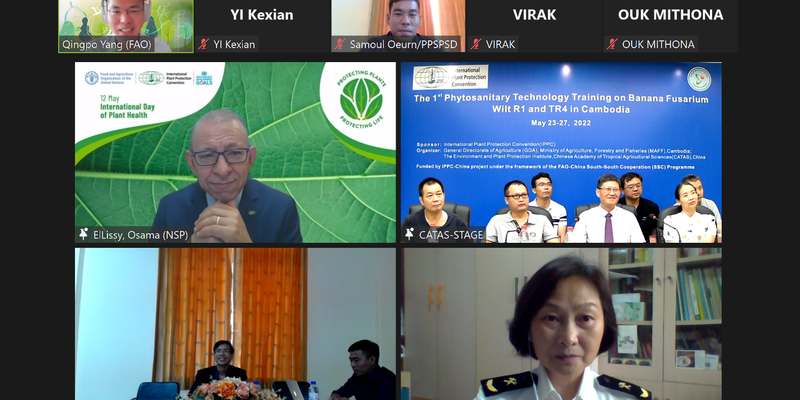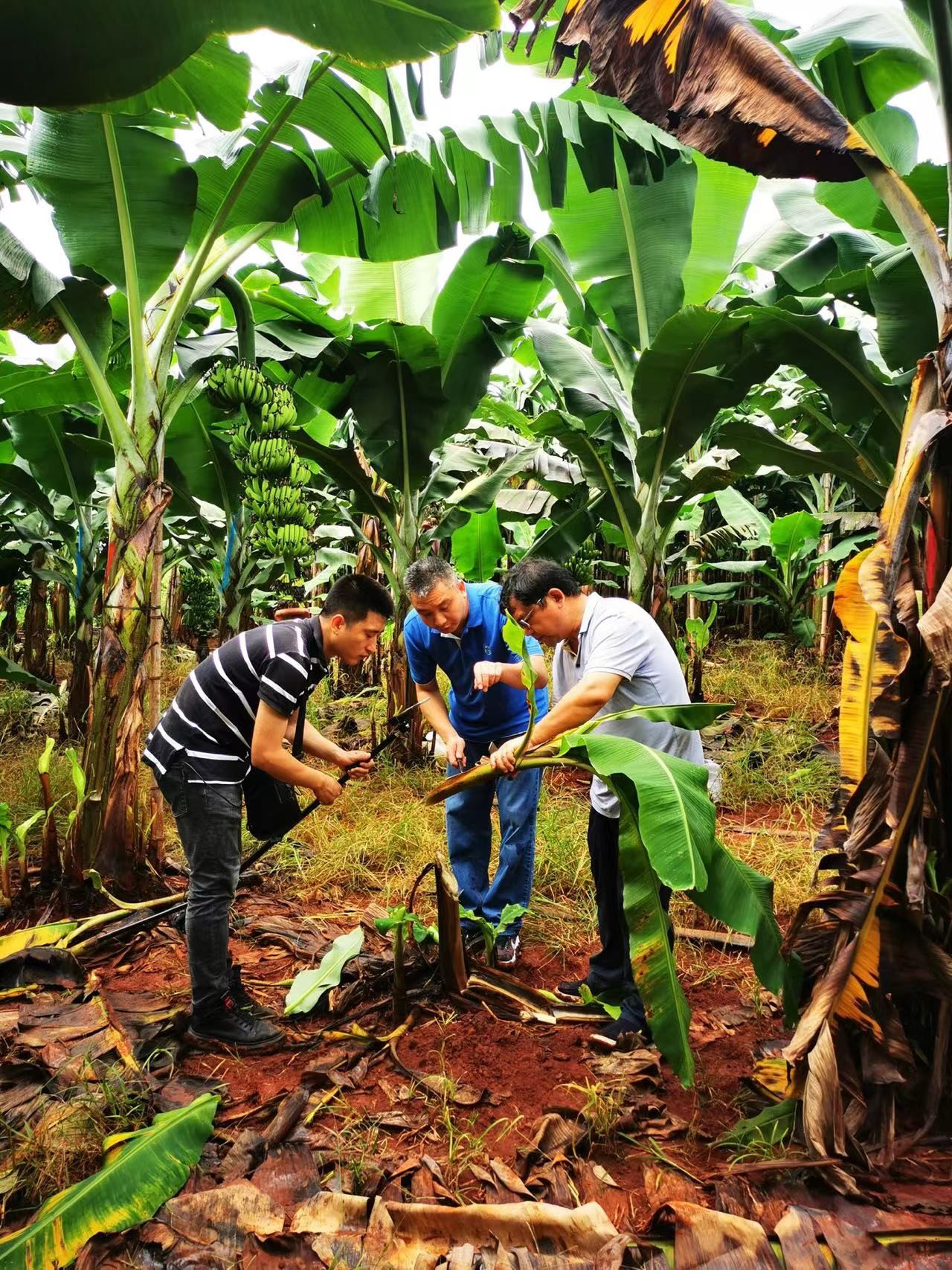Successful five-day training course on banana Fusarium wilt R1 and TR4 held for Cambodian trainees
Posted on Thu, 02 Jun 2022, 08:42

The virtual phytosanitary technology training for Cambodia on Banana Fusarium wilt R1 and TR4 @IPPC
ROME, 30 May 2022. The Secretariat of the International Plant Protection Convention (IPPC) organized the first virtual phytosanitary technology training on Banana Fusarium wilt Race 1 (R1) and Tropical Race 4 (TR4) in Cambodia from 23-27 May 2022. The training series was supported by the IPPC-China project titled, “Strengthening the Capacity of Developing Contracting Parties to Implement the IPPC and its Standards under FAO-China South-South Cooperation Programme.”
“Cambodia needs assistance in building capacity on diagnostic, surveillance and in formulating strategies to control banana diseases particularly banana Fusarium wilt R1 and TR4,” said Ker Monthivuth, Director of Plant Protection, Sanitary and Phytosanitary Department (PPSPSD), General Directorate of Agriculture (GDA), Ministry of Agriculture, Forestry and Fisheries (MAFF). Montuvith expressed his appreciation for the IPPC Secretariat and Chinese experts’ efforts and contribution to the training course.
Cambodia is one of the two pilot countries of the IPPC-China project, along with Sri Lanka. The recently held training is the first on phytosanitary technology benefitting 15 trainees selected by Cambodian counterpart from PPSPSD. Trainees learned the techniques of monitoring, early detection and laboratory identification of Fusarium wilt R1 and TR4. Trainees also learned phytosanitary techniques and technologies in integrated pest management (IPM) to combat the disease. Upon Cambodia’s request, the speakers also presented the entry quarantine and banana Fusarium wilt detection on imported banana. To improve the quality of the training course, the speakers travelled to the field and livestreamed to participants how to conduct field disease observation and apply control technology.
Towards the end of the training course, trainees were divided into three groups. Each group presented a proposal showing how they would apply phytosanitary measures to control Fusarium wilt R1 and TR4 in Cambodia. The Chinese experts provided comments and suggestions on how to improve these proposals.
During the closing session, Heng Chhun Hy, Deputy Director of PPSPSD, expressed his appreciation for the excellent coordination of the IPPC Secretariat and the high quality of presentations delivered by Chinese experts.
“The IPPC Secretariat is always committed to supporting contracting parties’ phytosanitary capacity and to facilitating international trade,” said Osama El-Lissy, IPPC Secretary. El-Lissy affirmed the valuable presentations that were customized according to Cambodia’s needs during the five-day training. He believed there would be more opportunities to cooperate further with Cambodia and other partners.

Chinese experts livestreamed on how to conduct field disease observation and apply control technology @CATAS,China

